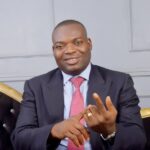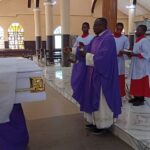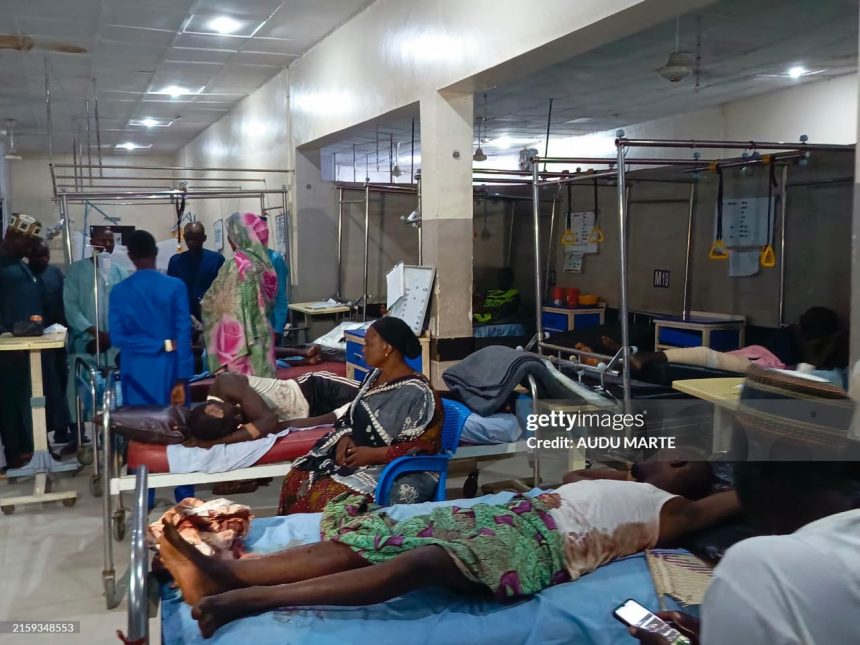BY AISHA SALISU BILAL
Access to quality healthcare remains a significant challenge in northern Nigeria, where millions of people continue to suffer from poor health outcomes due to inadequate medical services, infrastructure, and resources.
Despite recent improvements, the region is still struggling to provide equitable healthcare to its rapidly growing population.
Factors such as limited access to medical facilities, shortage of healthcare professionals, poverty, and cultural barriers are contributing to the ongoing health crisis in northern Nigeria.
One of the most pressing issues facing healthcare in northern Nigeria is the lack of adequate healthcare infrastructure.
Many rural areas, where the majority of the population resides, are severely underserved by medical facilities.
In some places, people must travel long distances to reach the nearest clinic or hospital, which may not have the necessary medical equipment or staff to treat common illnesses.
Even in urban centers, hospitals are often overcrowded, understaffed, and poorly equipped, leaving healthcare workers struggling to provide quality care.
The lack of basic healthcare infrastructure contributes to poor health outcomes, including high maternal and child mortality rates, the spread of infectious diseases, and a general decline in life expectancy.
Another critical issue is the shortage of healthcare professionals.
Northern Nigeria has one of the lowest numbers of medical professionals per capita in the country.
There is a significant lack of doctors, nurses, midwives, and other health workers, particularly in rural areas.
The healthcare system is also plagued by poor working conditions, low wages, and insufficient training for medical staff.
As a result, many skilled healthcare workers are migrating abroad or choosing to work in the private sector, where conditions are often better.
This shortage of healthcare professionals further compounds the challenges of providing adequate medical care to the region’s population.
Poverty is another major barrier to healthcare access in northern Nigeria.
Many people simply cannot afford to pay for healthcare services, even if they are available.
With a large portion of the population living below the poverty line, out-of-pocket healthcare expenses are often unaffordable.
This situation is worsened by a lack of adequate health insurance coverage, leaving many people with no safety net when they fall ill.
As a result, many individuals delay seeking medical attention or forgo treatment altogether, leading to the worsening of preventable conditions.
Cultural and societal factors also play a role in hindering access to healthcare in northern Nigeria.
In some areas, traditional beliefs and practices continue to influence health-seeking behaviors.
For example, some communities prefer to rely on traditional healers or local remedies instead of seeking medical treatment in clinics or hospitals.
Additionally, cultural attitudes towards women’s health, including the decision to limit women’s access to reproductive healthcare, have contributed to high rates of maternal mortality and gender-based health disparities.
The maternal mortality rate in northern Nigeria is particularly alarming, with many women dying during childbirth due to a lack of access to skilled birth attendants, adequate medical facilities, and prenatal care.
Factors such as early marriage, limited education for women, and poverty exacerbate these health risks.
The low rate of antenatal care visits and deliveries in healthcare facilities also contributes to poor maternal health outcomes in the region.
Infectious diseases such as malaria, cholera, and meningitis remain widespread in northern Nigeria, particularly in rural areas with limited access to clean water, sanitation, and healthcare.
Poor hygiene practices and a lack of proper sanitation infrastructure contribute to the spread of waterborne diseases, while inadequate vaccination coverage leaves children vulnerable to preventable illnesses.
The outbreak of diseases like Lassa fever and Ebola in the region further highlights the weakness of the healthcare system and its inability to respond quickly to health crises.
The Nigerian government and international organizations have taken steps to address healthcare challenges in northern Nigeria.
Programs such as the National Health Insurance Scheme (NHIS) and initiatives aimed at improving maternal and child health are critical to addressing the healthcare access gap.
Additionally, efforts to increase the number of healthcare professionals through training programs and incentives for doctors to work in rural areas have shown some promise.
However, these initiatives have been slow to achieve widespread impact due to limited funding, poor implementation, and systemic corruption.
To address the healthcare crisis in northern Nigeria, a comprehensive approach is needed.
This should include increasing investment in healthcare infrastructure, particularly in rural areas, to ensure that medical facilities are adequately equipped to handle the needs of the population.
The recruitment, training, and retention of healthcare professionals, particularly in underserved areas, must be prioritized to ensure that there are enough qualified personnel to meet the demands of the population.
Poverty reduction strategies must also be incorporated into healthcare reforms.
Expanding access to affordable health insurance and subsidizing healthcare costs for the most vulnerable populations can help reduce the financial burden on families and improve access to essential medical services.
Furthermore, community-based healthcare programs can play an important role in addressing healthcare disparities by bringing services directly to remote areas and offering preventive care, education, and basic treatment.
Cultural barriers to healthcare must also be addressed through education and awareness campaigns that promote the importance of modern medical care, particularly for women and children.
This can be achieved through partnerships with local leaders, traditional healers, and community-based organizations that can act as intermediaries to change harmful health practices.
Finally, the Nigerian government must prioritize healthcare in its national development agenda, ensuring that it receives the necessary funding and political support.
Tackling corruption within the healthcare system is also crucial to ensure that resources are used effectively to improve healthcare delivery.
Addressing the healthcare challenges in northern Nigeria requires a long-term, holistic approach that takes into account the region’s unique cultural, economic, and geographical factors.
By prioritizing healthcare infrastructure, professional training, financial accessibility, and community-based care, northern Nigeria can begin to overcome its healthcare challenges and improve the health and well-being of its population.
AISHA SALISU BILAL IS A 300 LEVEL STUDENT FROM MASS COMMUNICATION DEPARTMENT BORNO STATE UNIVERSITY, BORNO STATE.












